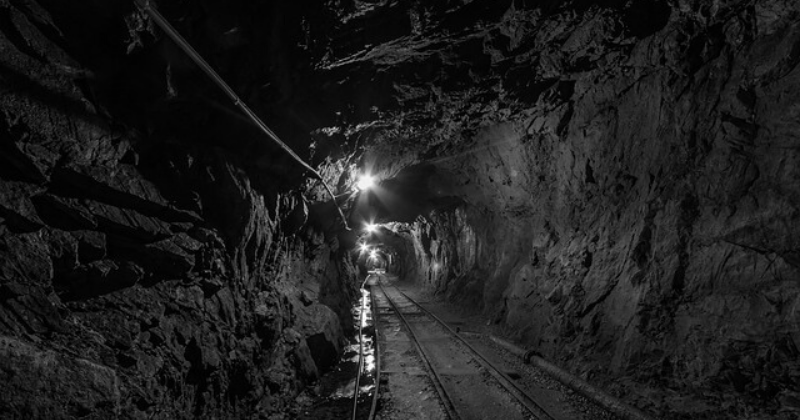Background
Among other objectives, the Energy Bill, 2015 (the Bill) seeks to end Kenya Power and Lighting Company’s over fifty (50) years near monopoly, over power distribution and retailing of electricity in Kenya, entrenched under the soon to be repealed Energy Act No. 6 of 2006 (the Energy Act). Power distribution in the energy sector plays a crucial role in the government’s efforts to ensure that every Kenyan has access to electricity by the year 2020 so the statute is of great national importance. Below is a brief analysis of the measures introduced in the Bill to meet this objective:-
New defined terms
Currently, the Energy Act only defines “distribution” to mean the ownership, operation, management or control of facilities for the movement or delivery of electrical energy to enable supply to consumers; and “distribution licence”, to mean any document or instrument authorising a person to distribute electrical energy in the manner described in such a document. In addition to the meaning of distribution and a distribution licence, the Bill has now introduced the terms below:-
- “distributed generation” means a system of small generation plants supplying directly to the distribution system, any one of which does not exceed ten thousand (10,000) KW in capacity
- “distribution licensee” to mean a licensee authorised to operate and maintain a distribution system for supplying energy to the consumers in its area of supply
- “distribution of electricity” means the conveyance of electricity by a distribution licensee through its distribution system
- “distribution system” means a system, works, plant, equipment or service for the delivery, distribution or supply of energy directly to the consumers, but does not include a power plant or transmission line
Licensing
Any person that wants to distribute electricity must apply for a licence to the Energy Regulatory Authority (the Authority) provided that the person will not require authorisation to generate electrical energy for their own use of a capacity not exceeding one MW. If any person carries out any electricity undertaking without a licence, they commit an offence and will be liable upon conviction, to a fine not exceeding KES 1 million or to an imprisonment of not more than one (1) year or to both.
The form and manner of applying for a license will be provided in the Regulations of the Bill; however, the Cabinet Secretary is yet to set them. The Authority can also invite applications for a licence through a fair, open and competitive process in accordance with procedures to be prescribed by the Cabinet Secretary in the regulations.
An applicant must give fifteen (15) days’ notice by public advertisement in at least two newspapers of nationwide circulation, before making an application for distribution that they intend to make the said application. Thereafter, the Authority will notify the applicant whether the application was received. The Bill has provisions that allow members of the public to also make objections to the application.
Factors considered by the Authority
The Authority will consider the following factors in granting or objecting the application
- The impact of the undertaking on the social, cultural or recreational life of the community
- The need to protect the environment and to conserve the natural resources in accordance with the Environmental Management and Coordination Act
- The Land use or the location of the undertaking
- The economic and financial benefits to the country or area of supply of the undertaking
- The economic and energy policies in place, from time to time
- The cost of the undertaking and financing arrangements
- The ability of the applicant to operate in a manner designed to protect the health and safety of its employees and users of the service for which the licence is required and other members of the public who would be affected by the undertaking
- The technical and financial capacity of the applicant to render the service for which the licence is required
- Any representations or objections
- The applicant’s proposed tariff
- Any other matter that the Authority may consider likely to have a bearing on the electrical undertaking
Within sixty (60) days of notifying the Applicant the application was complete, the Authority will inform the applicant if they were successful. Conversely, where the application was unsuccessful, the applicant will be notified within seven (7) days of refusal. An aggrieved applicant will have the right to appeal to the tribunal within thirty (30) days of the decision of the Authority.
Duties of a Distribution Licensee
There are expressed obligations and rights given to a distribution licensee; some of which include the power to plan, build, operate and maintain the distribution system necessary for the transfer of electrical energy from generating stations or plants either directly or indirectly for purposes of enabling supply to consumers as stated in the licence.
Despite the rights accrued under the distribution licence, it does not relieve the licensee or anyone else from complying with laws applying to the development, building, operation or maintenance of a distribution network. Some of them include the following;
- They are expected to build, maintain, and keep in good state of repair suitable and sufficient electric supply lines for purposes of enabling supply to be given in the area of supply specified in that behalf in the licence
- Operate an efficient, safe, co-ordinated and economical distribution system
- Where applicable, comply with the directions of the system operator
- Provide non-discriminatory open access to its distribution system for use by any licensee, retailer or eligible consumer upon payment of use of system charges as will be prescribed in regulations and such other fees and compliance with minimum requirements of the distribution licensee
- Provide such information as may be prescribed in regulations to enable the Authority to approve the fees, charges and any necessary requirements
Unless the licence states otherwise, the distribution licensee must ensure as far as technically and economically practicable, that the distribution system is operated with enough capacity to provide network services to persons authorised to connect to the network.
In order to ensure there is reliability and quality of supply and quality of service, the licensee will be required to collect, analyse and maintain such data, information and statistics relating to his undertaking to enable him monitor and report to the Authority on the reliability and quality of supply & service, as would be prescribed in regulations.
Revocation of Licence
A licence can be revoked by the Authority where;
- The undertaking or the execution of the works related has not commenced at the expiry of twenty four (24) months from the date on which the licence was granted, or at the expiry of any extended period which the Authority may allow;
- It is satisfied that the licensee is either willfully or negligently not operating in accordance with the terms and conditions of the licence, or
- The provisions under the Bill or any regulations;
- The licensee is adjudged bankrupt; or
- The licensee at any time after commencement of the licence, makes representation to the Authority that the undertaking cannot be carried on with profit, and ought to be abandoned, and, upon inquiry the Authority is satisfied that the representation is true.
The Authority must however give a thirty (30) day notice to the licence-holder to show cause why their licence should not be revoked.
Extension of the network to persons requiring supply of electrical energy
There are also additional duties pertaining to extending the network to persons who wish to be supplied with electrical energy.
A distribution licensee will be required to plan and construct the requisite electric supply lines to enable any person in the licensee’s area of supply, receive a supply of electrical energy either directly from the licensee, or from a duly authorised electricity retailer, as the case may be.
A person in need of the supply of electrical energy must apply to the duly authorised retailer, but where there is no such retailer, to the distribution licensee. If the supply is to be provided at medium or high voltage the retailer can advise the applicant to apply directly to the distribution licensee. Further, the person who needs the supply must specify the premises in respect of which the supply is required and the maximum power required to be supplied and a reasonable date when the supply is required to commence.
Upon receipt of the application to be supplied with electrical energy, the retailer or the distribution licensee, as the case may be, must within the period specified in the licence and any regulations, notify the person by whom the application is made, of the terms and conditions, which may include payments of whatever nature, to be complied with by the applicant before the supply is availed. (Provided that the licensee may in its discretion allow an applicant under this sub-section to pay the cost of the installation in installments over such periods and on such terms and conditions as may be agreed upon between the licensee and such person).
Regardless of any payments made during the application to be supplied with electrical energy, the electric supply lines will remain to be the property of the distribution licensee and could be used to supply other persons, provided that such use does not prejudicially affect the supply of electrical energy to the person who first required such electric supply lines to be laid down.
Rights of Persons who have applied to be supplied with electrical energy
They will be entitled to reimbursement by the licensee of a fair and just proportion of the cost originally paid from payment made by each person subsequently connected to electric supply lines, provided that a claim for reimbursement is made within six (6) years. The licensee will determine the fair and just proportion of the cost to be reimbursed in accordance with regulations of the Bill. If any difference arises as to the amount to be reimbursed by any person, that issue will be determined by the Authority upon an application. A licensee must keep at its office forms of requisition and a copy will, on application, be supplied free of charge to any person within the area of supply and any supplied requisition be deemed valid in point of form.





